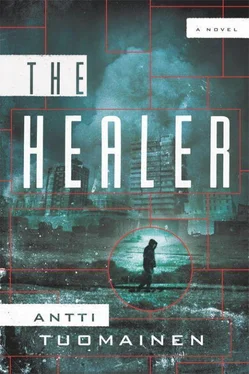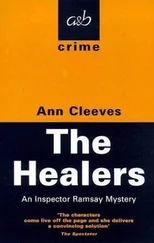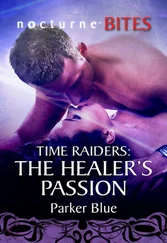The lock on the street door recognized my card, and the door opened. When the power was out we used the old cut key. Keys like that should have been unnecessary, should have been history, but like many other objects and ideas once considered relics, they managed to do what the newer ones couldn’t: they worked.
I tried the lights in the stairwell, but the switch was out of order again. I climbed to the second story in the dark, using the stair railing as a guide, arrived at our door, opened both safety locks and the ordinary lock, turned off the alarm, and, instinctively, breathed in.
The smell of the place had everything in it: morning coffee, a hurried spritz of perfume, the pine soap from washing the rugs the summer before, the long Christmas holidays, the armchair we bought together, every night spent with the person you love. It was all there in that smell, and it was all connected together in my mind, although the place had been aired out a thousand times. The smell was so familiar that I was just about to announce that I was home, automatically. But there was no one there to hear me.
I carried my bag into the kitchen, took out the papers and the laptop, and put them on the table. I warmed up the vegetable casserole Johanna had made over the weekend and sat down to eat. Somewhere a couple of floors up lived some devoted music lovers. The beat was so low, steady, and repetitive that it was easy to believe it would carry on forever—nothing short of massive intervention would ever stop its progress.
Everything I saw on the table and tasted in my mouth and thought in my head confirmed my fear that something bad had happened. An outsized lump rose in my throat and made it difficult to swallow, and I felt a squeezing around my chest and abdomen that suddenly forced me to concentrate entirely on breathing.
I pushed my plate aside and turned on Johanna’s computer. The hum of the machine and the glow of the screen filled the kitchen. The very first thing I saw was the desktop image: Johanna and I on our honeymoon ten years ago.
More swallowing.
The two of us in the foreground, younger in many ways, above us an almost palpably blue southern European sky, behind us Florence’s Ponte Vecchio, beside us a patch of the uneven, ancient wall of a house and the gilded sign of a riverside café, half illegible from the dazzle of sunlight.
I looked at Johanna’s laughing eyes, aimed straight ahead—reflecting green as well as blue in the bright light of April—her slightly wide mouth, her even, white teeth, the very beginnings of tiny wrinkles, and the short, curly hair that bordered her face like spring petals.
I opened the folders on the computer desktop.
In the folder marked “New” I found a subfolder “H.” I realized I had guessed correctly: “H” was for Healer. I went through the documents. Most of them were Johanna’s text files, some were news videos, links, and articles from other papers. The most recent text file was from yesterday. I clicked it open.
The piece was nearly finished. Johanna would certainly be using most of it in her final article. As soon as she writes it, I reminded myself.
It began with a description of the multiple murder in Tapiola. A family of five had been killed in the early morning hours, and someone using the pseudonym “the Healer” had announced himself as the perpetrator. According to the police investigation, the father of the family was the last to die: the CEO of a large food company and an advocate for the meat processing industry, he’d had to look on, with his hands and feet tied and his mouth taped, as his wife and three small children were each cold-bloodedly executed with a gunshot to the head. He was murdered last, with a single bullet to the center of his forehead.
Johanna had interviewed the police investigator, the interior minister, and a representative of a private security company. The piece ended with an extended plea from Johanna, directed as much at the police and the public as it was at the Healer himself.
I also found a map of Helsinki and a chart Johanna had made of the date and location of each murder, the times she received the e-mails, and the main contents of the messages. This had to do with the sticky note I’d found. I looked at it again: West–East or North–South. The map clearly showed that the murders had progressed chronologically, first from west to east, then from north to south.
Based on Johanna’s summaries of the contents of the messages, the e-mails had grown darker as the murders reached the south side of the city. Some of the messages also had a surprisingly personal tone: Johanna was addressed using her first name and praised for her “truthful and uncompromising” journalism. The writer even seemed to believe that she would understand the necessity for this kind of extreme action.
The second-to-last message had come the day after the murders in Punavuori. A family of four—a father who owned and operated a large chain of car dealerships, his wife, and their two sons, aged ten and twelve—were found dead in their home. Without the e-mail message, the deaths would probably have been classified as another of the murder-suicides that were occurring weekly. The suicide theory was supported by the fact that the large-caliber weapon the murders were committed with was found in the father’s hand, as if he were handing it to the police as proof.
Then the Healer’s message arrived. The address was given in the e-mail—Kapteenikatu 14—with an admonition to investigate the matter more thoroughly.
This was duly done, and it became clear that although the gun had been in the father’s hand, someone else had helped him aim and shoot. So he had felt each shot in his hand and body and seen and heard his own children die from bullets that came from a gun he was holding.
The last message was hastily and poorly written—stilted in both grammar and content. It didn’t defend the crimes in any way.
I got up from the table, walked to the balcony, and stood there for a long time. I breathed in the cool air, trying to blow away the invisible stone on my chest. The stone lightened, but it didn’t roll away completely.
We’d moved into our place almost immediately after we married. The apartment had become a home and the home had become dear to us; it was our place in the world—a world that was completely different ten years ago. Of course it was easy to say afterward that all the warning signs were already visible then—the summer stretching out long and dry into autumn, rainy winters, increasingly high winds, news about hundreds of millions of people wandering the world, and exotic insects appearing in our own yards, on our own skin, spreading Lyme disease, malaria, sandfly fever, encephalitis.
Our building was on a high hill in Herttoniemi, and on a clear day you could see across the bay from the living room and balcony all the way to Arabianranta, where most of the houses were continuously flooded. Like many other neighborhoods that suffered from flooding, Arabianranta was often dark. They didn’t dare let electricity in because of the water that remained in the badly damaged buildings. With the naked eye, from two and a half kilometers away, I could see dozens of fires along the shore. From where I stood they looked small and delicate, like just-lit matches that could easily be blown out. The reality was otherwise. The fires were as much as a meter and a half in diameter. People used all kinds of things they found on the shore and in abandoned buildings as fuel. There were rumors that they used dead animals, even people.
It was strange how I’d got used to seeing the fires. I couldn’t have told you when the first ones appeared or when the evening ribbon of flames they formed became a daily sight.
Farther off, beyond the silhouette of the buildings on the shore, were the modern towers of Pasila, and the blaze and glow to the left told me where the city center was. Over it all lay a dark, boundless night sky that held the whole world in its cold, sure grip.
Читать дальше












